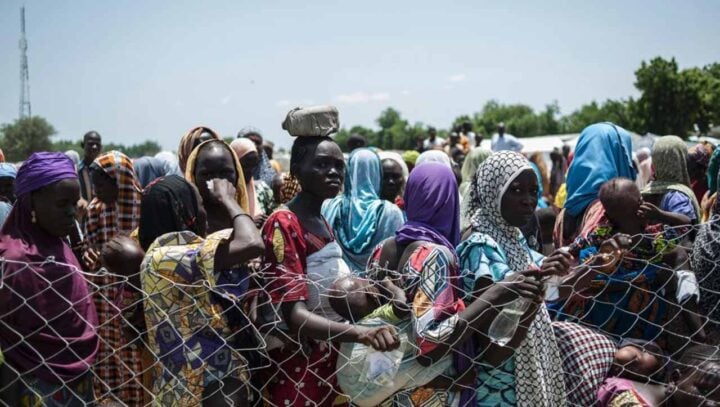A file picture of internally displaced persons (IDPs)
The federal government has launched the second phase of the renewed hope agric empowerment project (REHAEP) for displaced persons in Plateau state.
The National Commission for Refugees, Migrants, and Internally Displaced Persons (NCFRMI) inaugurated the project in collaboration with the federal ministry of agriculture and food security.
The project was launched in Kpwasho, Bassa LGA of the state.
Tijani Ahmed, a federal commissioner of NCFRMI, said the project was designed to help displaced persons by engaging them in agricultural activities.
Advertisement
“The project will support 300 IDPs in Plateau with inputs, cash grants, and labour costs,” NAN quoted Ahmed as saying.
“The private sector will also assist by providing market access for harvested grains, contributing to food security and economic empowerment.
“The pilot phase of REHAEPI is also being implemented in Nasarawa and Borno, with plans to expand to other states with significant IDP populations, for a period of five years.”
Advertisement
The federal commissioner said the IDPs will receive stipends for monitoring and evaluation of farmlands and seedlings.
“Seedlings like rice, maize, sorghum, wheat, and others will be planted on the land,” he said.
“The traditional leaders, under the Gbong Gwom Jos, donated 150 hectares of farmlands for the number of years for IDPs and host communities.
“The federal ministry of agriculture provided the needed inputs to cultivate the land, while the NCFRMI profiles the IDPs and provides them with a cash grant for labour cost.
Advertisement
“The private sector comes in, and hopefully when they harvest, they provide off-takers who will now sell the grains and put money in the hands of IDPs, and also contribute to food security.”
He added that the commission is partnering with the Nigeria Security and Civil Defense Corps (NSCDC) Agro Rangers and the community to protect farmers when needed.
Add a comment








